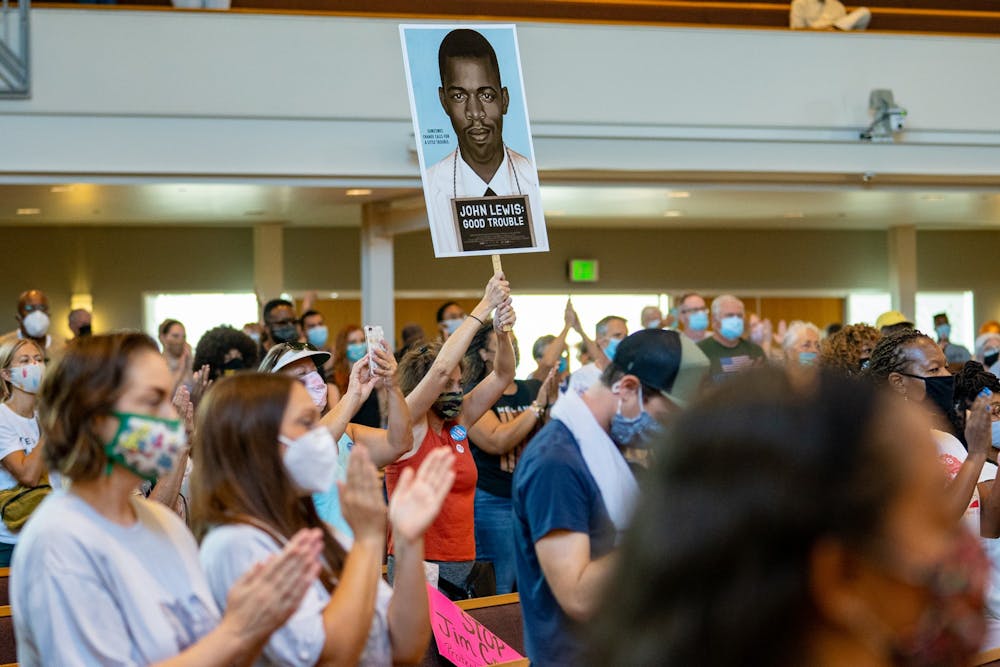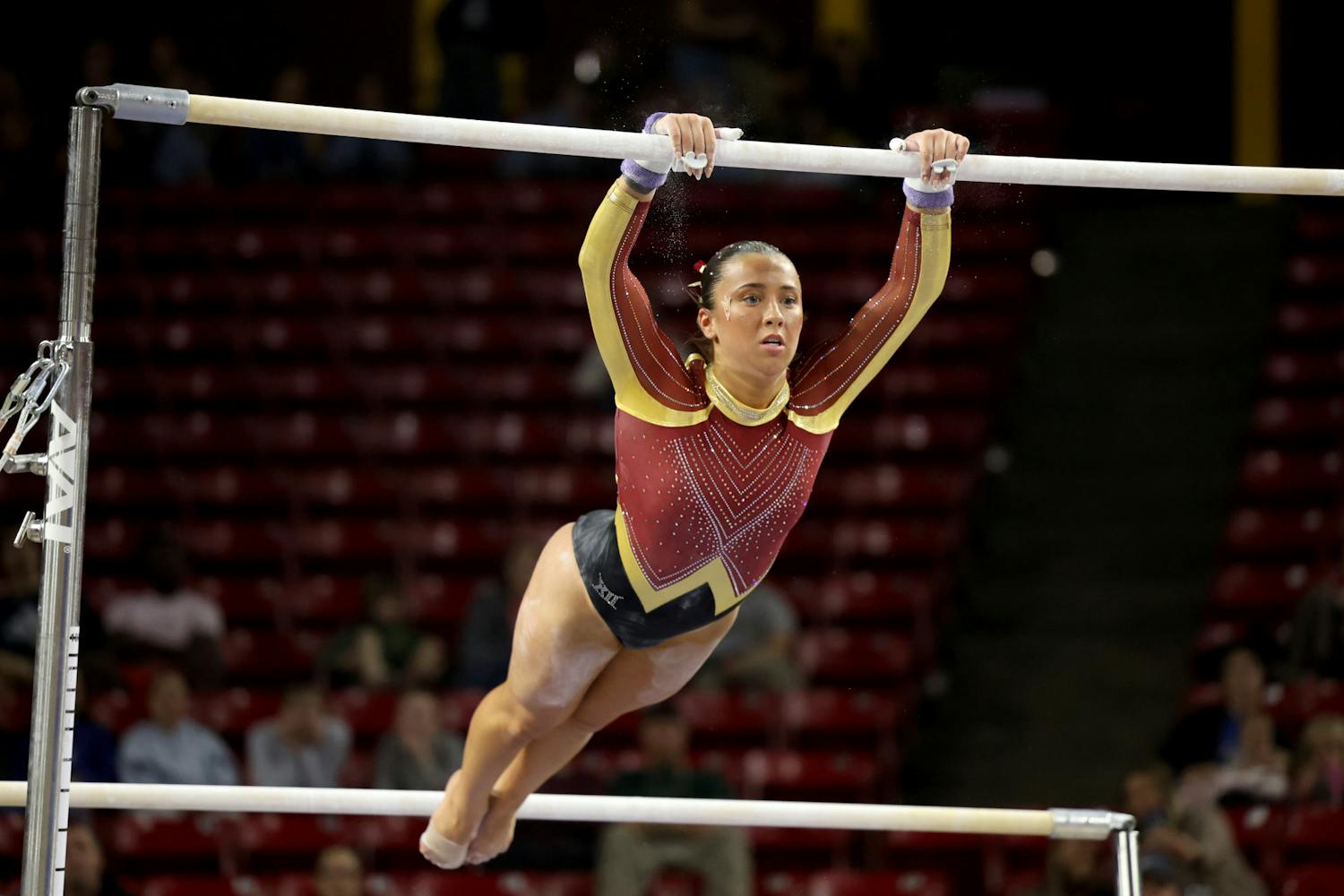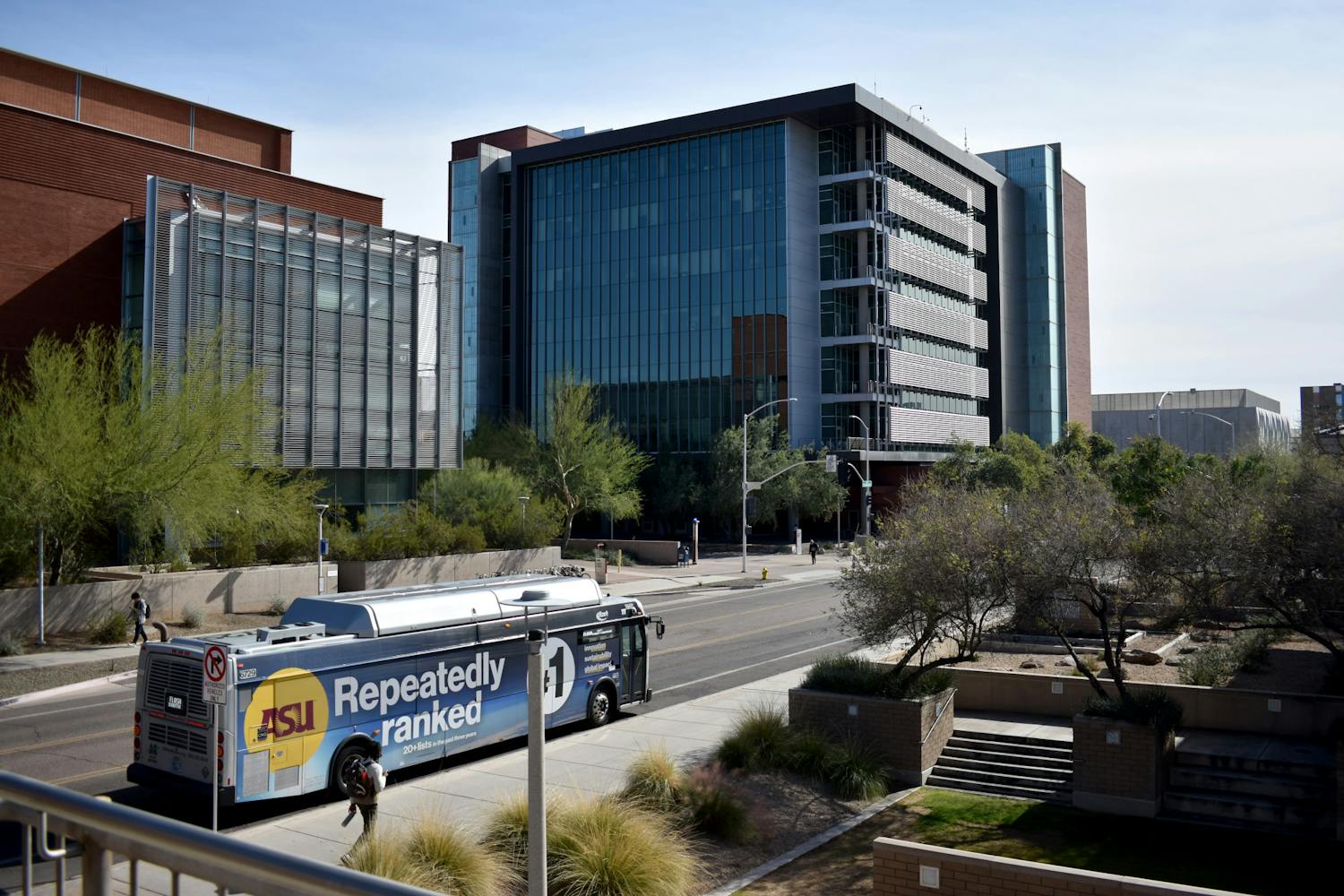ASU students protested Arizona voter restriction laws at the March On for Voting Rights event in Phoenix Saturday, held in honor of the 58th anniversary of Martin Luther King Jr.’s March on Washington.
The nationwide event organized by March On, a nonprofit group, advocated for the passage of the For the People Act, which would reform campaign finance laws and ban partisan gerrymandering, and the John Lewis Voting Rights Advancement Act, which would expand voting rights by strengthening some provisions of the Voting Rights Act of 1965.
The event was held indoors at Pilgrim's Rest Baptist Church in lieu of an outdoor march due to Phoenix's extreme August heat, according to event organizers. Attendees listened in on a church service with modifications to fit the event, such as speeches about voting that then transitioned to panels with community leaders.
Organizers estimated there were about 600 people in attendance.
Amritha Karthikeyan, a sophomore studying sustainability who attended the event, expressed concern about the impact of voter suppression laws on college students.
"College students already have really low levels of voter engagement and some of the policies the Arizona Legislature wants to impose will just add to the barriers that students already face," Karthikeyan said.
The Phoenix flagship event featured speeches from prominent local leaders including Judge Deborah Begay and newly appointed AFL-CIO President Liz Shuler, as well as tables from various activist groups promoting causes like ranked-choice voting and Washington, D.C., statehood.
Ema Angulo Rodriguez, a junior studying psychology and Spanish, is a community manager with Future Coalition, a group dedicated to supporting youth-led organizations and organizers who helped plan the event.
"I'm an immigrant, I'm a political refugee, I'm a trans person, I'm a college student," she said. "I believe all our issues have to come after voting rights because that's the foundation (so) we can create a democracy that truly represents us."
According to New York University School of Law's Brennan Center for Justice, as of July 14, 18 states passed 30 laws in 2021 restricting access to voting. Arizona passed three such laws during the 2021 legislative session.
Senate Bills 1003 and 1485 will restrict vote by mail access by imposing stricter signature requirements for absentee ballots and changing requirements to remain on absentee voter lists, respectively.
READ MORE: State legislature bill could purge infrequent voters from early voting list
Senate Bill 1819, largely a budget bill, includes a provision that will require a review of voter rolls and purges voters "who are not eligible to register to vote." Speakers at the event spoke out against the bills and advocated for the passage of federal legislation that would nullify the state laws.
Ian Sherwood, a freshman studying political science, attended the march because he was impassioned by laws he felt were restrictive.
"(Arizona legislators) want to make voting harder for us as college students by limiting early voting," Sherwood said. "They want to limit mail-in voting, they're going to purge us off the rolls now that AEVL can purge you off for missing two elections."
By Oct. 30, 2020, already 7 million people aged 18 to 29 had voted early or absentee in the 2020 elections, according to the Center for Information and Research on Civic Learning and Engagement.
Angulo Rodriguez recited a poem she wrote about her experience being unable to vote due to her citizenship status.
"'Since I was young, I thought of democracy as the means of being part of something greater than myself,'" Angulo Rodriguez recited. "'And maybe no government holds the same principles I've upheld, but I'd love to contribute to the process of creating one that does.'"
Trinity Miracle, a poet, organizer and junior studying justice studies, was also asked to recite a poem. She wrote a poem for the event called "I Went to the South and Got Super Powers" recounting her experience with a Freedom Ride event.
"It felt really personal, because there's a whole whirlwind of emotions going to all of those historic cities and I really did feel like I got superpowers," Miracle said. "I felt like it embodied the spirit of (the event) and the work that MLK did."
Although organizers and attendees viewed the event as a success, Angulo Rodriguez said there was still work to be done registering voters and urging lawmakers to promote voter expansion rather than suppression.
"If we want to live in a future that truly represents us, that has our best interests in mind, we have to make sure that our democracy is secured," Angulo Rodriguez said.
Reach the reporter at rpriest2@asu.edu and follow @reaganspriest on Twitter.
Like The State Press on Facebook and follow @statepress on Twitter.
Continue supporting student journalism and donate to The State Press today.

Reagan Priest is a managing editor, overseeing and working with the six digital desks at The State Press. She previously worked as a social justice reporter for Cronkite News and as a digital production intern at The Arizona Republic.





